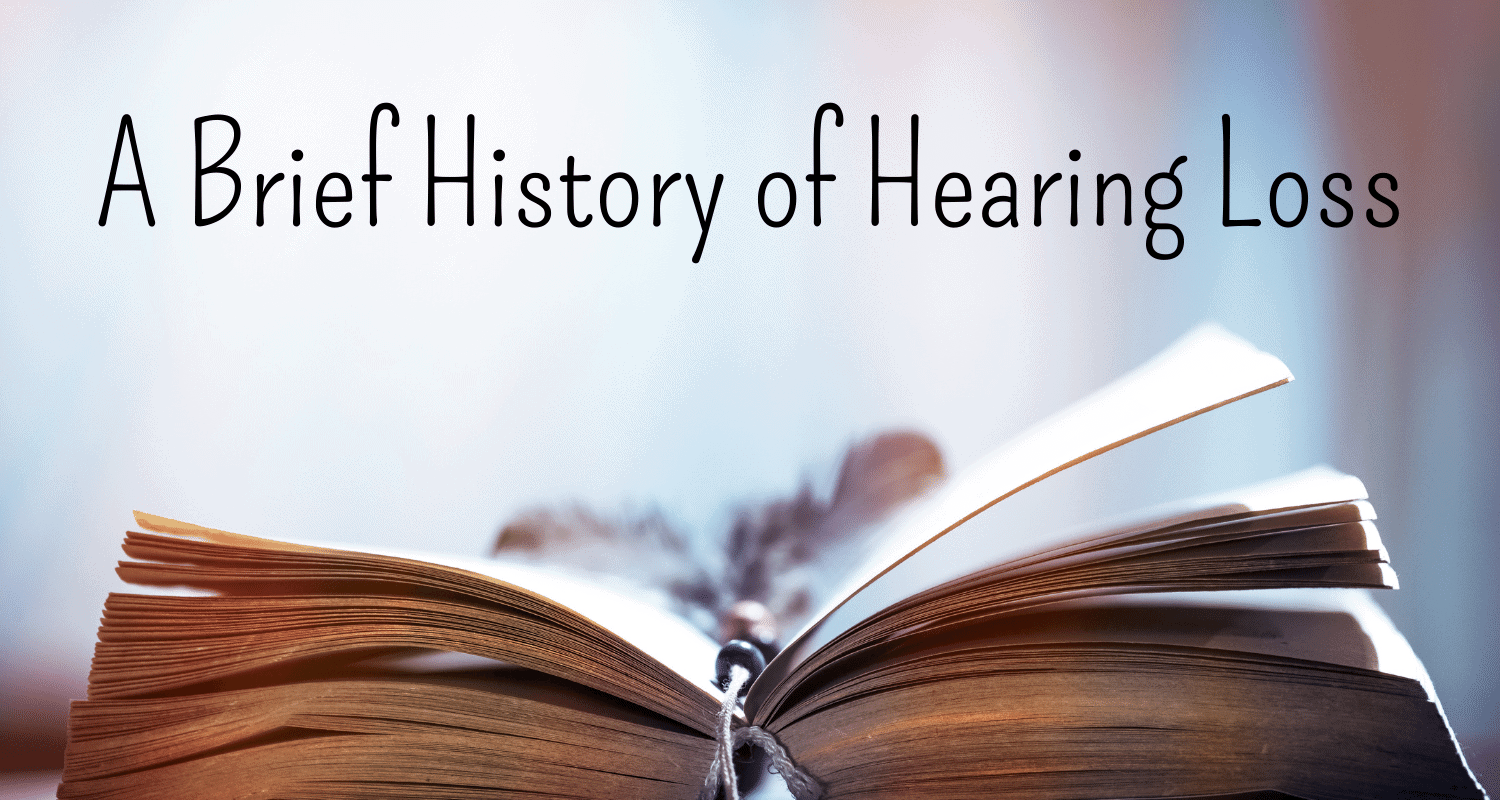- The Future of Hearing Health Research: Promising Breakthroughs - April 18, 2024
- Hearing Health in the Classroom: Strategies for Teachers and Students - April 6, 2024
- The Power of Bluetooth: A New Chapter in Hearing Aids - March 26, 2024
Some of our everyday modern health concerns arose out of the invention of a condition. Good-smelling breath, for instance, became an issue only after what used to be a surgical sterilizing formula was marketed as mouthwash. And hence, halitosis — or bad breath — became a modern condition.
Hearing loss, however, has been around as long as humans have existed. Rather than a modern condition, deaf-ness and difficulty hearing has been chronicled in written history as early as 1550 BC.
Early evidence of hearing loss
It’s difficult to find concrete examples of hearing loss in the study of early skeletal remains. This is because what causes sensorineural hearing loss, or hearing problems related to damage of the inner ear, are long gone. The mechanics of the inner ear and auditory nerve are made up of tissue which decays relatively shortly after burial. However, a mummified Egyptian was found to have suffered a perforated eardrum.
We do have evidence of conductive hearing loss, or that which occurs because of a physical obstruction to sound entering the ear. Extremely — and we mean extremely — early examples of hearing loss have been documented in a 35,000-45,000 years old Neanderthal skeleton with bony protrusions of the inner ear.
How was hearing loss perceived?
Although we don’t have a physical record of sensorineural hearing loss in human remains, there are numerous documentations of its existence throughout history. In ancient times, deafness was considered a defect of intellect in Greek society. There was great focus on performance of intellect, through speaking and communication, that may have helped to form such a rudimentary understanding of deafness. Collectively, this ridiculous view has disappeared from mainstream culture thanks to the tireless work of activists throughout history. Though, we might consider that some of the unfounded stigmas we have around hearing loss today are stubborn and unsubstantiated holdovers from centuries ago.
Early treatments of hearing loss
Egyptian records contain a treatment for poor hearing that recommends mixing olive oil, red lead, ant eggs, bat wings and goat urine and injecting the concoction into the ears. Today’s experts acknowledge that olive oil might relieve compounded ear wax, but can’t speak to the efficacy of the rest of the recipe.
Bloodletting was a popular process used to treat essentially any ailment right up until the 1920s and was also medically advised to relieve the pressure in the ears that contributed to hearing loss. It goes without saying that this had zero positive effect in treating hearing loss.
Beyond these ineffective treatments, there were devices developed to assist with hearing. A student of Galileo, Paolo Aproino, developed the first ear trumpet in the very beginnings of the 17th century. They weren’t widely adopted about a hundred years later. Progressive improvements to the design of the ear trumpet persisted for many centuries, though it wasn’t until post-World War II that we leapt forward toward today’s modern hearing aid.
Prevalence of hearing loss and aging
While only 3 in 1,000 babies are born with hearing loss, a large number of people in our modern times develop hearing loss with age. This is less likely to have been a problem before 1950, as life expectancy has risen dramatically. In the ancient world, the average person was lucky to reach 30 years of age. Truly, there wasn’t even time to develop later onset hearing loss! Post-industrialization has shifted our experience of old age and life expectancy trends upward each decade.
Consider that we only began to regularly live longer than 60 years old in 1950. Most age-related hearing loss or even noise-induced hearing loss takes hold later in life. One in three people over the age of 65 have hearing loss and more than half of people over 85 have hearing loss.
Modern options for treatment
How lucky are we to experience the problems of old age! Living a full and vibrant life well into old-age is a privilege, though we might have to pay more attention to healthy hearing than our grandparents did. Another benefit of being alive in these times is the leaps and bounds that treating hearing loss has made, even within the last few decades. No longer are we treating hearing loss with foul concoctions, but instead we have access to the very best and proven technology to help enhance our listening life. If you are ready to experience the life changing benefits of hearing loss treatment, contact us today!

